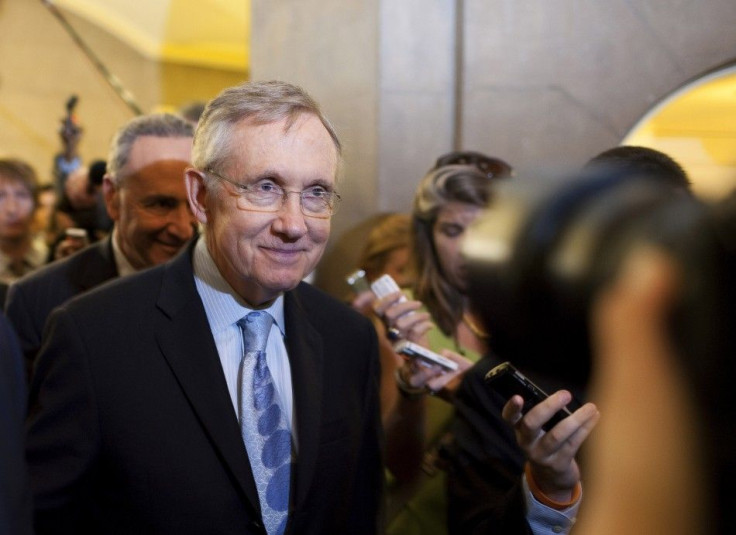Harry Reid Assails House GOP on Looming Government Shutdown, FEMA Funding

Senate Majority Leader Harry Reid on Monday slammed Republicans in the House of Representatives for leaving Washington before negotiating to avoid a government shutdown by Saturday and provide funding to the Federal Emergency Management Agency.
The Nevada Democrat made his comments before the Senate is scheduled to vote on a resolution that will pave the way to fund the government and provide $3.65 billion to FEMA, without any cuts to an energy loan program that House Republicans had sought. Reid must receive Republican support to get the 60 votes needed to advance the Senate's latest government funding measure.
The House of Representatives, as we speak, on the eve of the government shutting down next Saturday, just a few days from now, and FEMA on the verge of having no money, they left, they're gone, Reid said on the Senate floor. Real hard to negotiate with people who are not here.
There has been a legislative tango between House Republicans and Senate Democrats over a short term government funding bill that will also fund FEMA, an agency with dwindling funds in the wake of disasters such as Hurricane Irene and tornadoes in Joplin, Mo. FEMA has $114 million for disaster relief, a Senate aide told The Associated Press Monday.
The Senate on Friday effectively killed a House bill that provided FEMA $3.65 billion 59-36, offsetting the money with a $1.5 billion cut to the U.S. Department of Energy's Advanced Technology Vehicle Management loan program.
The Senate's latest government spending plan calls for funding FEMA at the $3.65 billion figure that the House supported, while nixing cuts to the Department of Energy program. The Senate had passed bipartisan legislation that gave the disaster relief agency about $7 billion, but the House did not take up the measure.
I don't know how much more we can compromise, how much more fair we can be, Reid said.
© Copyright IBTimes 2024. All rights reserved.




















